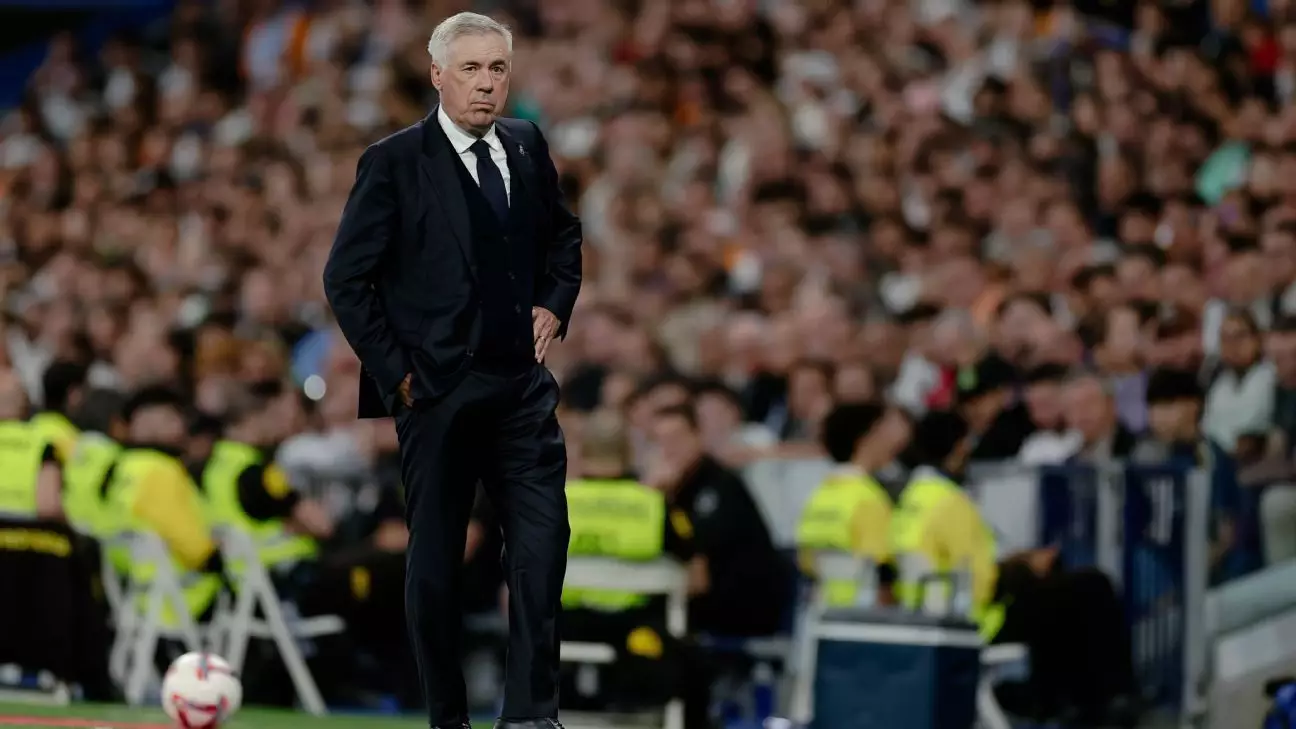In the realm of global sports, particularly football, the influence of external events often brings the playful spirit of the game into stark contrast with reality. Recent catastrophic flooding in Valencia served as a grim reminder that life can swiftly overshadow athletic competition. Real Madrid’s head coach, Carlo Ancelotti, expressed profound sentiments regarding the inherent responsibilities sport holds within society, emphasizing that during periods of tragedy, joy derived from football should take a backseat.
Valencia, a vibrant Spanish city, was rocked by unprecedented flash floods that claimed at least 217 lives and caused extensive property damage. The devastation left thousands without homes, fundamentally altering the landscape of a region known for its bustling life and culture. As a direct response to this disaster, La Liga took a measured approach, postponing key matches, including Real Madrid’s engagement with Valencia and Villarreal’s clash against Rayo Vallecano. However, the continuation of the remaining eight matches sparked controversy and significant debate within the football community regarding priorities.
Voices of Concern: Ancelotti and Simeone Speak Out
Carlo Ancelotti, amidst the horrors gripping the Valencian community, articulated a stark standpoint. He asserted that, in light of such tragedies, all football activity should be suspended, positing that the joys of the sport should never come at the cost of sensitivity towards human suffering. At a recent press conference, Ancelotti conveyed his sorrow, stating, “When people are not OK, you don’t have to party. Football has to stop. Because it is the most important of the least important things.” His sentiments were mirrored by Atlético Madrid’s coach, Diego Simeone, highlighting a collective sentiment among coaching staff that prioritizing sporting events over human tragedies is fundamentally misguided.
One of the central tensions unveiled during Ancelotti’s comments is the gap between managerial authority and decision-making powers. Ancelotti expressed a feeling of helplessness, asserting that coaches were not in a position to influence whether matches proceeded or were cancelled. Despite a shared desire among coaches to halt matches out of respect for the victims, the final decisions rested with the governing bodies of La Liga. This raises critical questions about the values upheld by those in power within sports organizations, particularly regarding the prioritization of human welfare over spectacle.
With the events of Valencia weighing heavily on the minds of players and coaches alike, the context of professionalism surfaces as another poignant theme. Ancelotti highlighted the challenge of focusing on their profession amidst overwhelming grief. He acknowledged that while players must remain committed to their preparation and responsibilities on the field, the weight of what transpired looms large. Lucas Vázquez, a full-back for Real Madrid, further introduced the idea that, regardless of personal opinions about the appropriateness of football continuing, the players are obliged to adhere to directives from higher authorities.
Although the tumultuous events overshadowed football activities, there are glimmers of hope that emerge from despair. La Liga has initiated collaboration with the Red Cross, inviting fans and the broader community to contribute financially to assist flood victims. Initiatives like these remind us of the sport’s inherent capacity to unite people for a cause greater than the game itself.
In the aftermath of the flooding in Valencia, it is clear that the world of football, much like life itself, is fundamentally interwoven with societal realities. Ancelotti’s stance serves as a crucial reminder that as we celebrate the spirit of competition and athletic triumph, we must equally recognize our collective human experience. Empathy and solidarity should always take precedence, guiding our actions and decisions even within the glamorous world of sport. In moments of tragedy, it is our shared humanity that must lead the way.


Leave a Reply